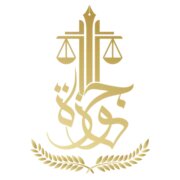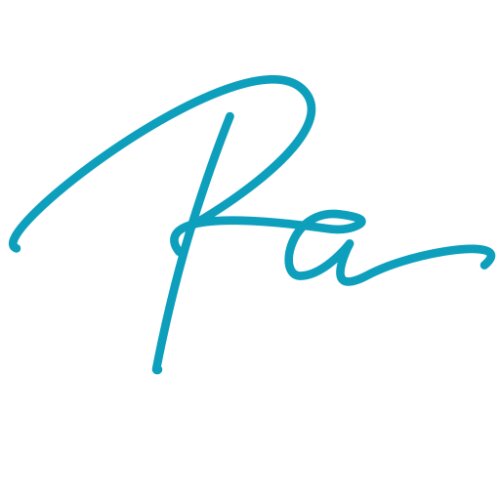Best Intellectual Property Lawyers in Qatar
Share your needs with us, get contacted by law firms.
Free. Takes 2 min.
Or refine your search by selecting a city:
List of the best lawyers in Qatar
About Intellectual Property Law in Qatar
Intellectual Property (IP) law in Qatar is an evolving area of legal practice that safeguards the creations of the human mind. This includes inventions, literary and artistic works, designs, symbols, names, and images used in commerce. Qatar is committed to providing a robust IP framework to support innovation and creativity, and its legal system encompasses several international treaties and agreements to which it is a signatory, such as the World Intellectual Property Organization (WIPO) conventions.
Why You May Need a Lawyer
Engaging a lawyer specializing in Intellectual Property can be crucial for several reasons. Individuals and businesses may need legal assistance to:
- Register patents, trademarks, or copyrights to protect their inventions and brands.
- Handle potential infringements on their IP rights or defend against claims of infringement.
- Negotiate and draft licensing agreements to commercialize their IP assets.
- Navigate complex IP laws and regulations, especially when dealing with cross-border issues.
- Manage IP portfolios strategically to leverage business value.
Local Laws Overview
Qatar's legal framework for Intellectual Property is designed to align with international standards. Some key aspects include:
- Patents: Governed by the Patents and Design Law, patents are granted for new inventions capable of industrial application.
- Trademarks: Trademark Law offers protection for registered trademarks, ensuring that business signs are protected from unauthorized use.
- Copyrights: Under the Author’s Copyright and Neighboring Rights Protection Law, copyrights are granted to original literary, artistic, and scientific works.
- Trade Secrets: The Anti-Commercial Concealment Law provides protection for undisclosed information that has commercial value.
- Enforcement: The Qatari legal system provides mechanisms for IP owners to enforce their rights through administrative and judicial proceedings.
Frequently Asked Questions
What is the duration of patent protection in Qatar?
Patents in Qatar are generally granted for a period of 20 years from the filing date, subject to payment of annual fees.
How can I register a trademark in Qatar?
To register a trademark, one must file an application with the Trademarks Office. It involves checking for any prior identical or similar trademarks and possibly facing opposition from third parties.
What works are protected under Qatari copyright law?
Qatari copyright law protects a wide range of works, including books, music, films, software, and artistic creations, upon their creation or fixation in a tangible medium.
Can foreigners hold IP rights in Qatar?
Yes, foreigners can register and hold IP rights in Qatar, provided that they comply with local registration requirements and procedures.
What remedies are available for IP infringement in Qatar?
Remedies include injunctions, damages, seizure of infringing goods, and destruction of counterfeit products.
How are IP disputes resolved in Qatar?
IP disputes can be resolved through administrative procedures at the relevant authorities or through the court system in Qatar.
Is there a process for opposing a trademark in Qatar?
Yes, after a trademark is published, third parties have the opportunity to oppose the registration by submitting a formal objection within a specified period.
How does Qatar protect trade secrets?
Trade secrets are protected under the Anti-Commercial Concealment Law, which penalizes unauthorized disclosure or use of confidential business information.
Are there any government incentives for IP protection in Qatar?
Qatar offers various incentives and support mechanisms, particularly for innovations that contribute to economic diversification and sustainability.
Does Qatar collaborate on international IP treaties?
Yes, Qatar is a member of several international IP treaties, enhancing cooperation and standardization of IP protection globally.
Additional Resources
For further assistance, you can reach out to:
- Qatar Ministry of Commerce and Industry: Responsible for IP registration and enforcement.
- Qatar Foundation and QSTP: Offer resources and support for innovations and IP commercialization.
- World Intellectual Property Organization (WIPO): Provides useful information for understanding international IP standards.
Next Steps
If you require legal assistance in the field of Intellectual Property in Qatar, consider taking the following steps:
- Identify your specific legal needs related to IP rights.
- Research and contact reputable legal firms specializing in IP law in Qatar.
- Prepare all relevant documents and information about your IP assets or concerns.
- Consult with a lawyer to discuss your case and options for registration, protection, or dispute resolution.
- Ensure that your legal advisor provides a roadmap for managing and protecting your IP assets effectively.
Lawzana helps you find the best lawyers and law firms in Qatar through a curated and pre-screened list of qualified legal professionals. Our platform offers rankings and detailed profiles of attorneys and law firms, allowing you to compare based on practice areas, including Intellectual Property, experience, and client feedback.
Each profile includes a description of the firm's areas of practice, client reviews, team members and partners, year of establishment, spoken languages, office locations, contact information, social media presence, and any published articles or resources. Most firms on our platform speak English and are experienced in both local and international legal matters.
Get a quote from top-rated law firms in Qatar — quickly, securely, and without unnecessary hassle.
Disclaimer:
The information provided on this page is for general informational purposes only and does not constitute legal advice. While we strive to ensure the accuracy and relevance of the content, legal information may change over time, and interpretations of the law can vary. You should always consult with a qualified legal professional for advice specific to your situation.
We disclaim all liability for actions taken or not taken based on the content of this page. If you believe any information is incorrect or outdated, please contact us, and we will review and update it where appropriate.
Browse intellectual property law firms by service in Qatar
Qatar Attorneys in related practice areas.
Browse intellectual property law firms by city in Qatar
Refine your search by selecting a city.
















